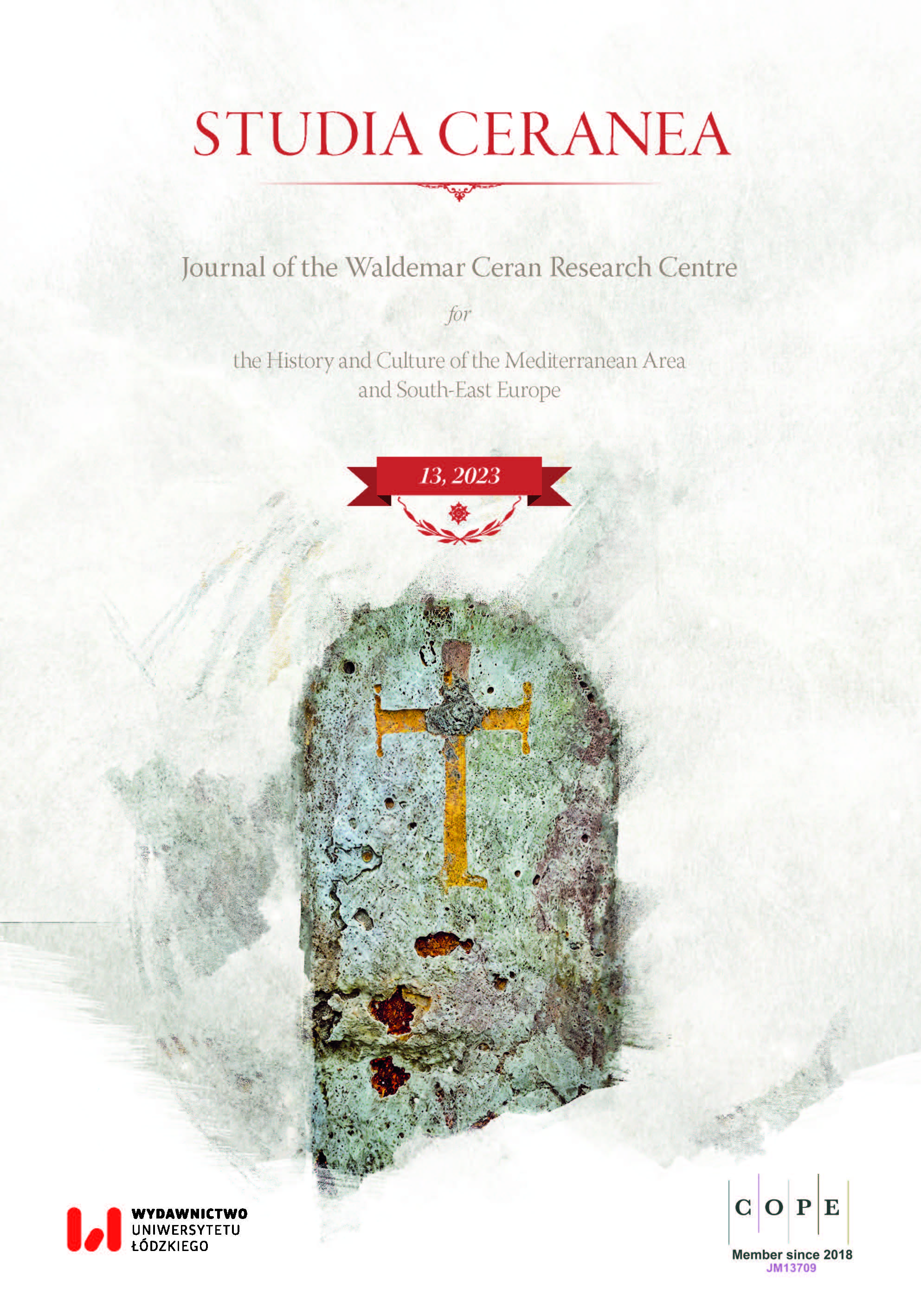Kidney Diseases in the Treatise "Dynameron" of Aelius Promotus (2nd Century AD) A Comparison with Dioscorides and Nikolaos Myrepsos
Kidney Diseases in the Treatise "Dynameron" of Aelius Promotus (2nd Century AD) A Comparison with Dioscorides and Nikolaos Myrepsos
Author(s): Marios Marselos, Elias ValiakosSubject(s): Cultural history, Ancient World, Health and medicine and law
Published by: Wydawnictwo Uniwersytetu Łódzkiego
Keywords: Alexandrian medicine; Aelius Promotus; 'Dynameron'; Dioscorides; Nikolaos Myrepsos
Summary/Abstract: Dynameron is a medical treatise from the 2nd century AD, written in Greek by an Alexandrian physician named Aelius Promotus. A copy made in Sicily during the 16th century is kept in the Marciana Library of Venice (Codex gr. Ζ. 295). In 130 chapters, Dynameron contains 870 recipes for the treatment of various diseases. Regarding the kidneys, Aelius describes 32 recipes with herbal (59), animal (6) and mineral (1) ingredients, with diuretic, spasmolytic, analgesic, or antiseptic properties, suitable for treating nephrolithiasis, strangury, dysuria and renal inflammations. Several diuretics of Aelius Promotus are similar to those found in De Materia Medica of Dioscorides (1st century AD). On the other hand, all of them are also included in the treatise Dynameron of Nikolaos Myrepsos, written in the 13th century AD. When the recipes are evaluated as a whole, it is evident that Aelius Promotus was a competent practising physician in a city with a glorious tradition in medicine and sciences.
- Issue Year: 2023
- Issue No: 13
- Page Range: 565-586
- Page Count: 22
- Language: English

